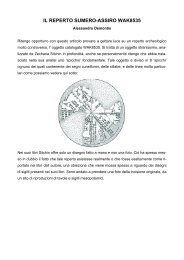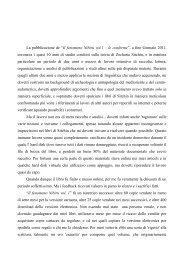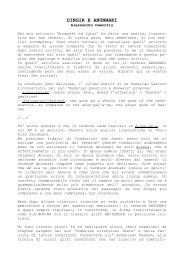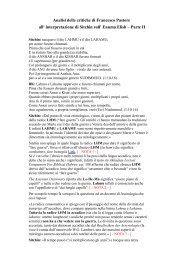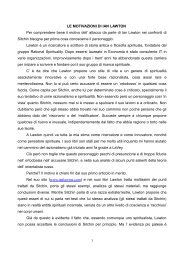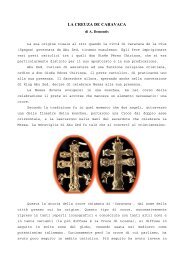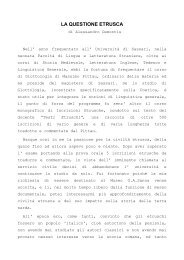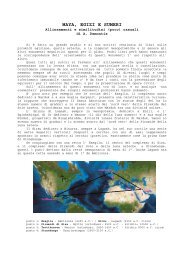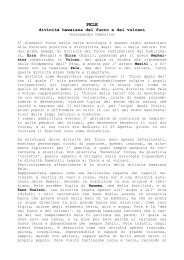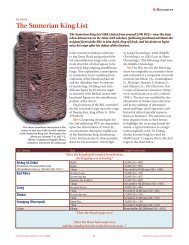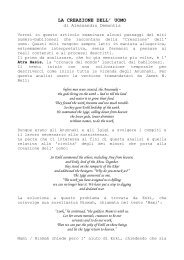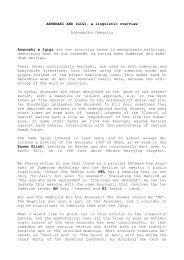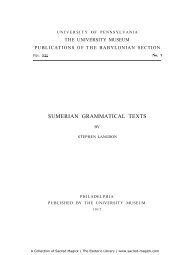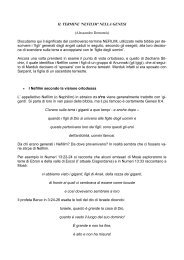Elementary Sumerian Glossary
Elementary Sumerian Glossary
Elementary Sumerian Glossary
Create successful ePaper yourself
Turn your PDF publications into a flip-book with our unique Google optimized e-Paper software.
NE → bar7, kúm, šeĝ6 Cf. also me-lám(NE) and zú -<br />
gir10(NE)<br />
NE-NE → níĝin<br />
ne, ne-en, ne-e this (one) (cf. ne-e = níĝ-e = an-[nu-ú]<br />
Emesal Vocabulary III 157)<br />
ne-éš → ì-ne-éš<br />
ne-me, ne-meš these (annūtu) (Steinkeller, Sale<br />
Documents 221)<br />
ne-mur ashes, hot embers (tumru)<br />
ne - su-ub to kiss<br />
nè, ne, nì strength, might, (military) force(s)<br />
nesaĝ, ne-saĝ, nì-saĝ first fruits (offering); prime,<br />
foremost. The nesaĝ sign is LAK 159, distinguished<br />
from murub4 only through Ur III.<br />
ni-is-ku finest, select (said of equids)<br />
ní fear, fearsomeness (see major study by Cunningham<br />
in Analysing Lit. Sum. 70ff.)<br />
ní self (especially with possessive pronouns, e.g. ní-bišè<br />
or ní-ba by itself); one's own (with pronouns, e.g. é<br />
ní-za your own house); character, nature(?) (cf. Shulgi<br />
B 10, 77) (Cunningham, Analysing Literary<br />
Sumumerian 70ff.)<br />
ní - búr to show off, make oneself important<br />
ní - dúb to relax, rest<br />
ní-gal great fearsomeness, awesomeness<br />
ní(-gal) - gùr to be clad in (great) fearsomeness,<br />
awesomeness<br />
ní gùr-ru clad in fearsomeness<br />
ní me-lám fearsome brilliance (two divine attributes<br />
which often appear together as a hendiadys)<br />
ní - ri to impose fear upon, oppress by fear, terrify,<br />
cloak in fearsomeness<br />
ní silim-eš(2) - du11 to boast<br />
ní-su-ub crazy person; (an ecstatic?)<br />
ní - te(ĝ) to grow afraid, be afraid of (-da-)<br />
ní-te(ĝ) fear<br />
ní - te(n), te-en to refresh oneself, cool oneself under<br />
(-ši-); to calm down, relax<br />
ní-te self; cf. ní-te-né by himself, herself<br />
ní-te-na(-k), me-te-na, mete(TE.ME)-na his or her<br />
own<br />
ní - tuku to revere, respect, have fear of<br />
ní-tuku reverent, respectful<br />
(lú) ní-zuh thief (cf. nì-zuh-a stolen thing)<br />
nì(ĝ) (níĝ) thing; that which (impersonal relative<br />
pronoun); (abstract noun formative) (The short value nì<br />
is being gradually replaced by the long value níĝ<br />
everywhere based presumably on Proto-Ea.)<br />
nì-á-zi(-ga) violent act (şēnu)<br />
nì-ak-a accomplishment<br />
nì-àr-ra groats<br />
nì-ba allotment, portion; gift<br />
nì-bún(KAxIM) turtle<br />
nì-buru14 harvest yield<br />
nì-dab5 appropriation<br />
nì-dù-a string of (dried) fruit (Pre-Sargonic; replaced<br />
by še-er-gu in Late Sargonic. See Civil, Or ns 56,<br />
233ff.)<br />
nì-du7 a (theologically) fitting thing (The reading is<br />
conventional, but many now read nì-ul "primeval<br />
thing." Cf. nì-ul-lí-a in Ean 1 vi 6 and Urnamma 26 ii<br />
1 and see J. Bauer, AV Klein 26f. and AfO 40/41, 94<br />
with J. Cooper, followed by C. Suter, contra<br />
Falkenstein GSGL I 60 and Edzard in RIME 3/1.<br />
Compare the Lagaš I male PN nì-du7-pa-è, where du7<br />
seems to make more sense than ul.)<br />
40



